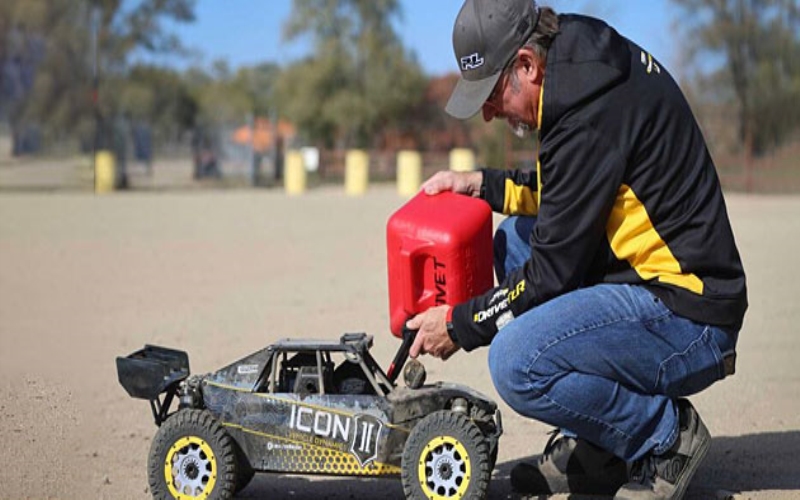Remote-controlled (RC) car shops have been a cornerstone of the hobbyist community in the USA for decades, offering not just products but a space for enthusiasts to gather, share, and learn. These shops have witnessed significant changes over the years, from the types of cars and parts offered to the ways in which they engage with their customers. Besides that, the advent of digital technology and the internet has particularly transformed how these shops operate, bringing both challenges and opportunities.
This article strives to investigate the development of RC car shops in America, from their early days to the present, highlighting the technological advancements and market trends that have influenced their development. By the end, readers would have a detailed insight of where RC car shops stand today and what the future may hold for them, offering valuable insights for shop owners, hobbyists, and industry watchers alike.
The Evolution of RC Car Shops in America
The journey of RC car shops in the United States is a fascinating tale of innovation, community, and the ever-evolving landscape of hobbyist retail. From humble beginnings in the late 20th century, these specialized stores have grown from niche hobby outlets into comprehensive hubs for enthusiasts of all ages.
As we navigate through the decades, a clear pattern of growth and adaptation emerges, reflecting broader trends in technology, consumer behavior, and retail:
| Era | Key Developments | Impact on RC Car Shops |
| 1980s | Introduction of RC cars to the American market. Small, enthusiast-led shops begin to open. | Shops are niche, with a focus on community building and sharing technical knowledge. |
| 1990s | Advances in RC technology; introduction of electric and nitro-powered cars. Rise of national and international competitions. | Shops expand their product ranges and start to organize local competitions, attracting a wider audience. |
| 2000s | Growth of internet sales and forums. Start of the decline for many brick-and-mortar stores. | Shops adapt by establishing online sales platforms and forums to maintain community engagement. |
| 2010s | Surge in DIY culture and maker movements. Advances in brushless motor technology and lithium polymer (LiPo) batteries. | Shops focus on customization services and educational workshops, embracing the maker movement. |
| 2020s | Pandemic-related shifts in retail, the rise of e-commerce, increased interest in outdoor and hobby activities, and the introduction of smart technology in RC cars (e.g., ESCs, apps). | Shops enhance their online presence, offer virtual workshops, and expand their product lines with smart tech. |
Current Trends Influencing RC Car Shops in the USA
In the constantly evolving landscape of hobby retail, RC car shops across the United States are witnessing a series of shifts that are reshaping their business models, customer engagement strategies, and product offerings.
Below, we explore some of the most significant trends currently influencing RC car shops in the USA:
- E-commerce Integration and Online Community Building: With the rise of online shopping, RC car shops have expanded beyond physical storefronts to establish robust e-commerce platforms. This shift is not merely about selling goods online but also about creating vibrant online communities through social media. These platforms serve as spaces for enthusiasts to share experiences, offer advice, and showcase their custom builds, thereby enhancing customer loyalty and engagement.
- Customization and DIY Kits: Hobbyists are increasingly demanding personalized RC cars, reflecting broader consumer trends toward customization. In response, shops are offering more DIY kits, custom parts, and even 3D printing services that allow customers to build or modify their cars to their precise specifications.
- Advanced Technology Adoption: The incorporation of advanced technologies, such as brushless motors, smart electronic speed controllers (ESCs), and lithium polymer (LiPo) batteries, is becoming standard in the RC car industry. These technologies offer improved performance, efficiency, and user experience, driving shops to stay at the forefront of innovation. Additionally, the integration of wireless programming and app connectivity in RC cars is enhancing the way hobbyists interact with their vehicles, pushing shops to offer products that are compatible with the latest tech advancements.
- Environmental Sustainability: Environmental awareness is influencing consumer choices across various sectors, including the RC car hobby. Hobbyists are increasingly looking for products that are not only high-performing but also eco-friendly. In response, RC car shops are beginning to stock more products made from sustainable materials, offer recycling programs for old parts and batteries, and promote electric models over nitro to reduce environmental impact.
- Educational Workshops and Events: RC car shops are leveraging workshops, classes, and events to engage customers beyond the point of sale. These activities not only educate enthusiasts about the latest in RC technology and techniques but also help build a sense of community. From beginner-friendly sessions to advanced customization workshops, these events are instrumental in fostering loyalty and driving foot traffic to the stores.
The Bottom Line
The future of RC car shops in the USA is bright, albeit filled with challenges and opportunities for adaptation. As we have explored, these shops have come a long way from their humble beginnings, growing alongside the hobby they support. The key to their continous triumph lies in embracing technological advancements, understanding the changing needs and preferences of their customers, and maintaining the sense of community that has always been at the heart of the RC car hobby.
By staying informed about trends, engaging with customers both in-person and online, and innovating in their offerings, RC car shops can continue to thrive in the dynamic landscape of retail and hobbyist engagement. Thus, as the hobby evolves, so too will the shops that serve its community, driving forward into the future with enthusiasm and resilience.





